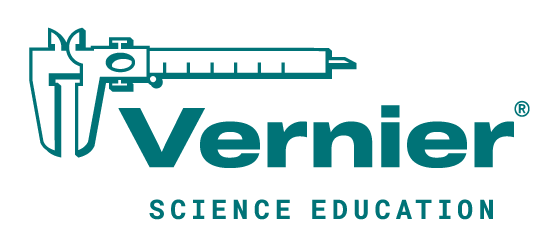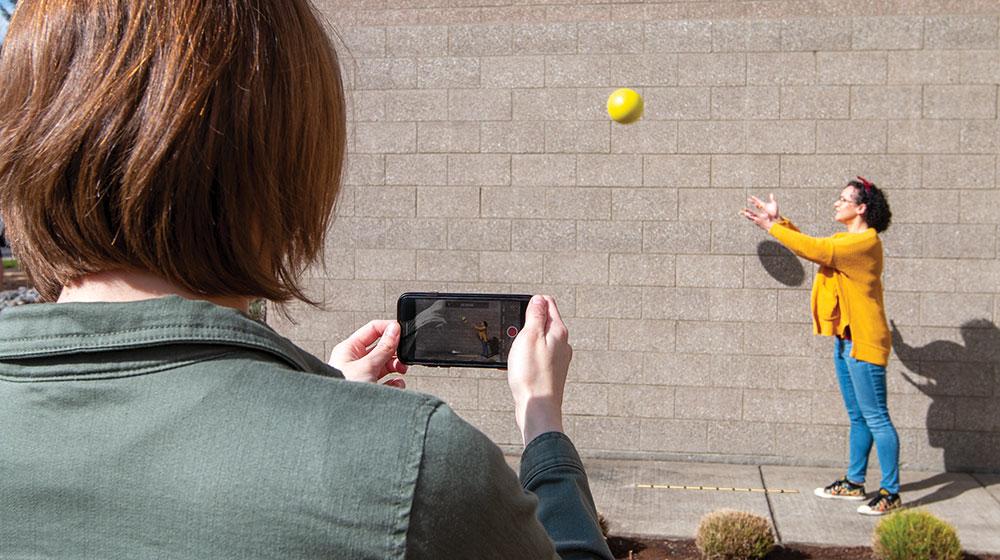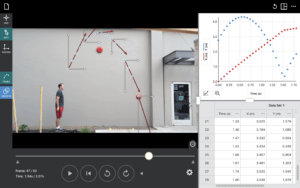The physics faculty at Oregon State University had two big tasks when COVID-19 halted in-person learning—they had to create new sets of online labs to take their algebra- and calculus-based courses through the end of the school year, as well as quickly figure out how to teach remote physics labs without having students purchase any physical equipment.
“When we found out we had to pivot to remote instruction during the last week of the winter term, we had two weeks to quickly get plans in place,” said Fred DeAngelis, director of instructional laboratories at Oregon State University, who oversees introductory 200-level physics labs. “In addition to actually creating the remote labs, we had to figure out how they could be conducted from an equipment and technology standpoint. It wasn’t feasible for us to purchase and send items to the approximately 1,500 students taking our introductory physics courses, and because of university guidelines, we couldn’t ask them to purchase their own equipment, either.”
Pivoting to Remote Instruction
Through a collaborative effort involving faculty leaders and teaching assistants, the OSU physics team came up with a plan. They started by asking some of the graduate teaching assistants (TAs) to switch their focus from teaching to creating lab activities.
“The TAs jumped in and gave up their spring break to begin outlining activities for the labs. I’d meet with both them and course instructors to go over the outlines, and we’d modify as needed before the labs were drafted and ready to go. Our goal was to have three to four labs ready for each course by the time we got remote instruction started and then to continue the creation process throughout the term,” said DeAngelis. “It was the epitome of just-in-time instruction and a really heroic and collaborative effort on the part of the course instructors and TAs. It allowed us to stay ahead of the curve.”
The labs were delivered to students on a weekly basis starting at the beginning of the term using both synchronous and asynchronous delivery models. Students—individually or in lab groups—also met remotely with teaching assistants to do the labs or receive guidance and have questions answered throughout the process.
Study Physics Anywhere
The first-term physics courses cover a variety of concepts from mechanics to projectile motion to friction. To study the latter concept, students were asked during one experiment to use a ramp along with three household items—one made of plastic, one of metal, and one of wood—to investigate the coefficient of static friction between household surfaces. Students captured videos of the objects sliding down the ramp during various trials, and they used the Vernier Video Analysis™ app to analyze and compare their data.
“We purchased Vernier Video Analysis as a cost-effective way to enhance our physics labs,” said David Craig, associate department head at Oregon State University. “Students really got a kick out of analyzing videos they took themselves. We encouraged this because students could slow the videos down and re-watch them as needed as they analyzed the data and collaborated virtually as a group.”
“One thing we particularly liked about Vernier Video Analysis was that students could use it right off the bat, whereas other programs we’ve used had a steep learning curve,” added Craig. “This was a big plus for us and the students.”
Moving Forward
The physics team at Oregon State University plans to continue to use and refine the remote labs as needed this coming year. “Students don’t learn effectively by just sitting and listening—they need to be consistently engaged in what they are learning about,” said Craig. “As educators, we are always looking for ways to optimize the learning experience for our students, especially in today’s increasingly remote environment.”
About the Educators
Fred DeAngelis
Oregon State University
Corvallis, OR
Fred DeAngelis is the director of instructional laboratories at Oregon State University. He oversees the introductory 200-level physics labs.
David Craig
Oregon State University
Corvallis, OR
David Craig is the associate department head at Oregon State University and an associate professor of practice. His research is focused on quantum cosmology and quantum foundations.


